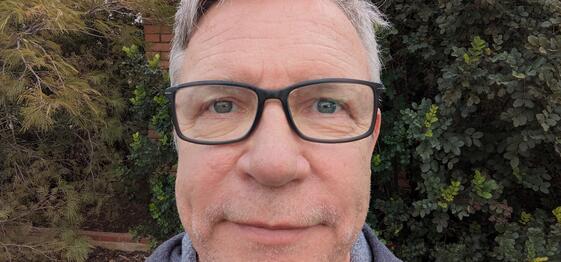Senator Spotlight March 2023
Categories:
Senator Spotlight
NAME: Barry Moon
What unit do you represent?
School of Humanities, Arts, and Cultural Studies within the New College of Interdisciplinary Arts and Sciences
How many years have you served in the Senate?
2
How many years have you been employed at ASU?
17
What other institutions have you taught at before coming to ASU?
Brown University (1998-2001), Bath Spa University (2001-2006)
What is your research and/or creative activities focus?
Music composition/performance, computer music.
Why did you decide to get involved with the Senate?
I had served as Chair of the New College if Interdisciplinary Arts and Sciences Faculty Assembly from 2017 until this year, and came to believe it’s important for all FT faculty to step up to fill important service roles. Serving in the Senate allows shaping policies that affect all ASU faculty. As administrative staff have been stretched thin in many Schools, many of the managerial tasks have been left for faculty to take care of. This has meant an increase in service workload within programs and schools. While much of this work is vital to daily activities, it is not as far-reaching in shaping the future of our university.
Describe what you have learned (or hope to learn) during your time in the Senate?
I’ve seen how the Senate plays an integral role in making many of ASU’s internal decisions. The interface between ASU’s administration and the senate leadership is much more involved than I would have previously anticipated. I think it is necessary for Senate leadership to be courageous in discussions with the administration, which is not always easy considering they (figuratively) sign our paychecks.
As we proceed, I hope to help make ASU a more equitable workplace. It has become apparent, perhaps out of necessity, that ASU’s management is based on a corporate model, where the more profitable segments of our community face far fewer challenges than those with less potential to attract major funding. There is always a tendency for people to serve their own purposes, but many of the folks I’ve met through my experience in the senate seem to share my desire to make it easier for everyone to succeed.
What committees have you participated in, or would like to participate in and what were you able to (or hope to) accomplish?
Since being on the Senate, I have been a member of the Research and Creative Activities Committee (RCAC). We have been working towards refining guidelines for application to funding open access publishing and creating language to safeguard researchers and ASU while working with data from questionable origins.
What would you say to your peers who might be considering accepting a nomination or nominating himself or herself for a position in the University Senate?
This work is vital to the university. Don’t think that if you don’t do it someone else will, because if everyone thought that way, there would be no senate.